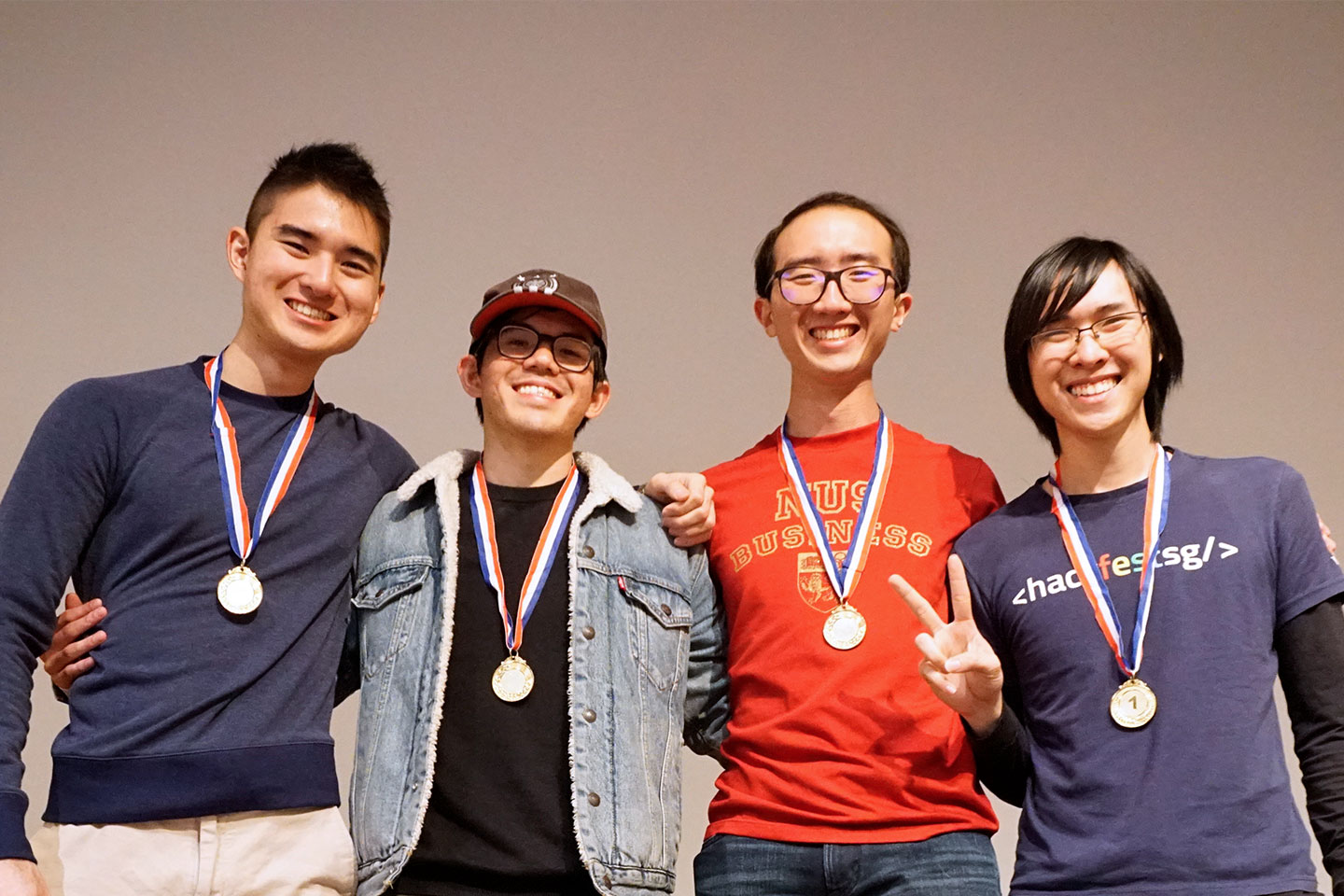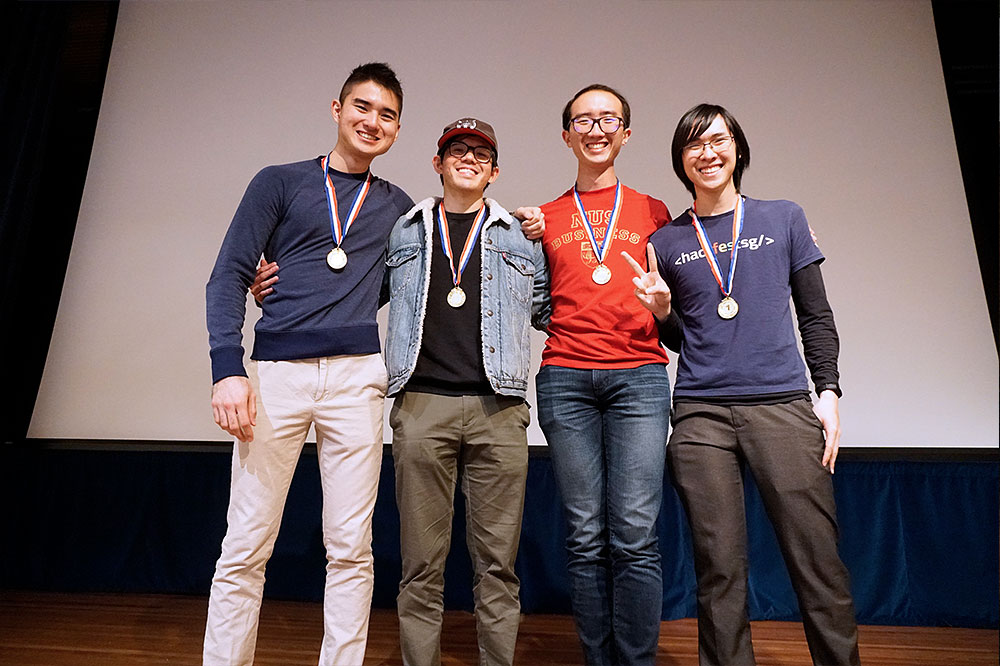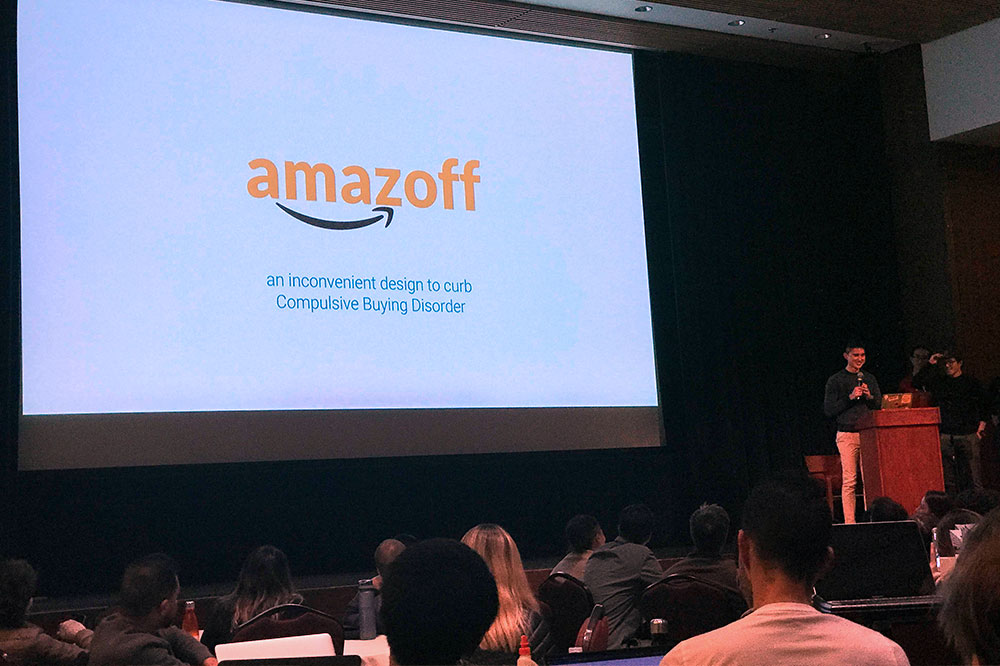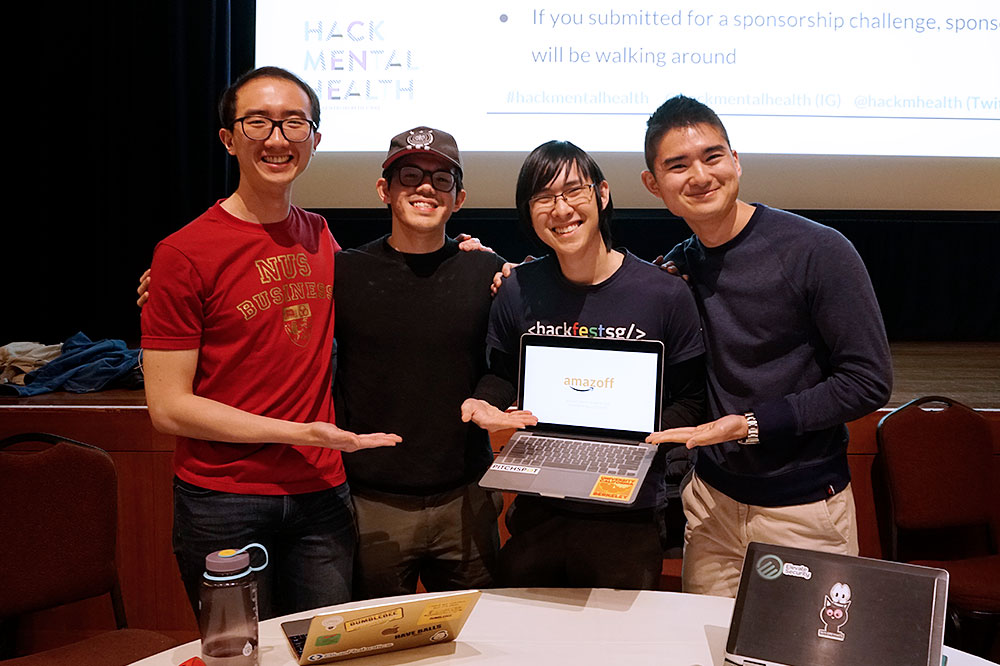Team Amazoff (Heng Chun Kiat, BBA Year 2; Leong Chang Jie, Engineering and BBA Year 3; Jerron Lim, Engineering Year 3, and David Kum, Computing Year 2) beat 60 teams from around the world to win the 2019 Bay Area Hack Mental Health hackathon.

The hackathon experience for a business student

In its second year, the 24-hour hackathon focuses on leveraging technology to improve mental health. The San Francisco event is one of the largest of its kind, drawing over some 500 attendees this year.
Currently in the United States for NUS Overseas Colleges (NOC) Silicon Valley, the four wowed the judges with a Google Chrome extension that tackles compulsive buying disorders. The software employs visual designs that nudge online shoppers, causing them to hesitate before they act on their impulses.
NUS Business School’s Chun Kiat spoke to Outside-In about his first-ever hackathon experience.

What was the competition like for you?
Participating in a hackathon in Silicon Valley was on my bucket list when I went for NOC.
I thought it would involve a lot of coding and technical jargon but surprisingly, hackathons do not reward teams with the most technical hacks. Instead, teams with the most innovative solutions are recognised.
Once the coding is complete, it boils down to how the team convinces the judges why their product can solve the problem.
What is your takeaway from this hackathon?
We did so much in two days – identify the problem, design creative solutions, write the code, prepare slides that convey our findings and product efficiently, and practice for rapid pitches.
NUS Business School’s rigourous and practical programme prepared me to operate and deliver under time pressure (while being sleep deprived), and ensure the audience understands our product.
What challenges did your team face?
The ideation process was the most time consuming part of the challenge. We did not know how relevant addressing shopping disorders would be to a mental health hack. By doing desktop research, but we eventually found strong evidence to support our case.
Fortunately, we had a very balanced team from a skills and knowledge perspective, and our developer was excellent. While he contributed the majority of the code, he was able to allocate coding tasks to us in a clear and understandable manner, allowing us to complete back-end work quickly.

What were the judges’ comments on your solution?
The judges felt the solution was creative and addressed an issue that many people experienced subconsciously. The judging panel included board members of health-related startups as well as investors in venture capital funds. They expressed great interest in what we did and even asked if we were going to continue working on it. We also had audience members asking if they could be in on waitlist to use our extension. The entire experience made us feel very honoured and grateful.
What would your advice be for Business School students who are keen on hackathons?
Do not be daunted by competitions such as hackathons; you might be more equipped to participate than you think. Dig deep into your entrepreneurial side to think of creative solutions and pitch with confidence. I am sure presentations from the Management & Organisation and Marketing modules would have prepared you adequately for that!
For more information on the NUS BBA programme, please visit http://bba.nus.edu/.


